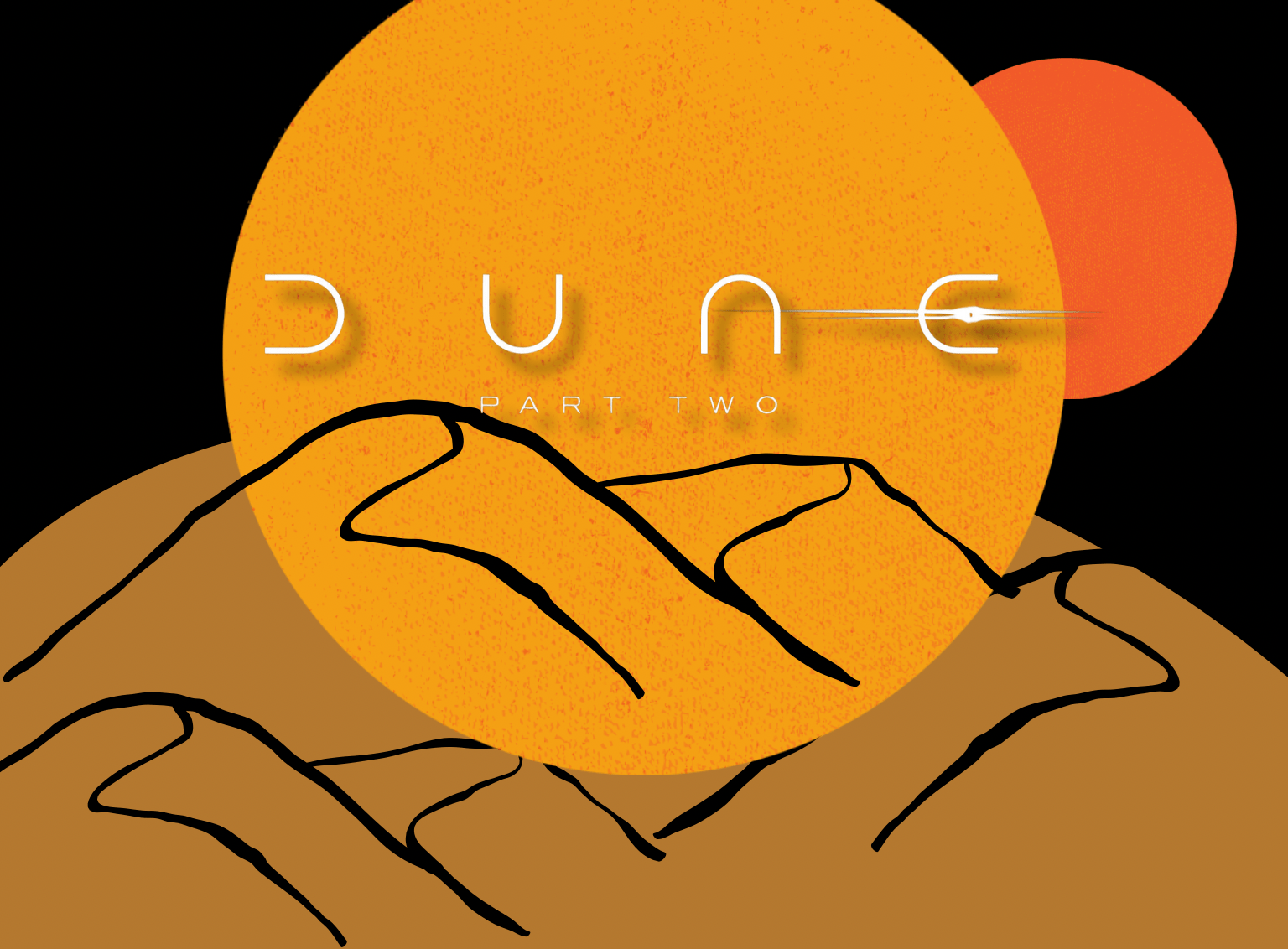Denis Villeneuve’s Dune: Part Two is a good (but not great) movie in and of itself, but as an adaptation of Frank Herbert’s 1965 novel Dune, it is, fundamentally, a failure.
There are things to like about the movie: the acting is solid throughout, the cinematography is strong, at times awe-inspiring, and the design work on the costumes, sets, and ships is gorgeous. Some of the changes made to the book are interesting, and had potential. In the film, the Fremen (the oppressed indigenous population of desert planet Arrakis) are portrayed as being divided by their belief in the Lisan-al Gaib prophecy. Some have faith, while others suspect it (correctly) to be the result of outside influence. As a result, the Fremen are presented as somewhat less homogenous than in the first Dune novel. But the changes in the Fremen attitude to the Lisan-al Gaib prophecy ultimately give them a more passive role in the movie’s narrative as victims of indoctrination rather than playing an essential and active part in the creation of the messiah figure.
The novel Dune is a story about systems of power, human psychological patterns, and the creation of messiahs — how all three constrict us, forcing us to obey their logic, turning us against ourselves and forcing us to create our worst nightmares with our own hands.
Protagonist Paul Atreides’ prescience shows him a virtually inevitable war of unimaginable horror waged in his name — “Muad’Dib’s Jihad.” This is a result of the oppression of the Fremen and the manipulation of their religion by the Bene Gesserit Sisterhood, among other things. It is likely meant to comment on colonialism and neocolonialism, as the spice — the commodity for which Arrakis is exploited — is an analog to oil, and “Gesserit” is derived from “Jesuit.” These factors mean that the Fremen will make him into a messiah figure almost regardless of his own actions.
The book has a message about the agency of followers in the creation of messiahs, and how systems of control create the conditions which produce them. Here, Paul’s journey is one of failure. He tells himself he seeks to stop the jihad, while acquiring more and more power to do so. Ultimately, this brings the jihad about: the fremen army he creates is nigh-unstoppable and hell-bent on eradicating their enemies, while his new status as emperor provides the legal and social justification for the war. Only as he is about to face his final obstacle to the imperial throne does he accept he cannot stop the violence.
The film version of Paul’s journey is much more shallow. Paul initially intends to manipulate the Fremen to get revenge for his father’s death, but soon actively renounces his messiah status (for no clear reason). His villainous arc when he finds his family’s atomic weapons, and he goes further towards the “dark side” when he increases his prescient abilities. He tells his mother there is only one path where their family survives, accepts the messiah persona, takes control of the “empire” (rather than the latin “imperium”) and starts a “holy war” (rather than the arabic “jihad”). It is in these developments that we see movie-Paul is not just different from book-Paul, but his opposite.
Book-Paul finds every path before him leading to horrific violence, struggles to find a way out, and fails. He is merely a leaf in the storm of history. Movie-Paul is rather awash in futures where his family perishes, and takes the one way out, even if it kills billions. Movie-Paul is a Great Man who shapes history; book-Paul is forced into the persona of a Great Man, knows it, and can’t stop it. Movie-Paul successfully does terrible things for his own good; book-Paul tries to prevent terrible things from happening in his name, and fails. Fundamentally, the book is about complex social systems and powerlessness in the face of them. The movie, about why making yourself into a messiah is bad.


